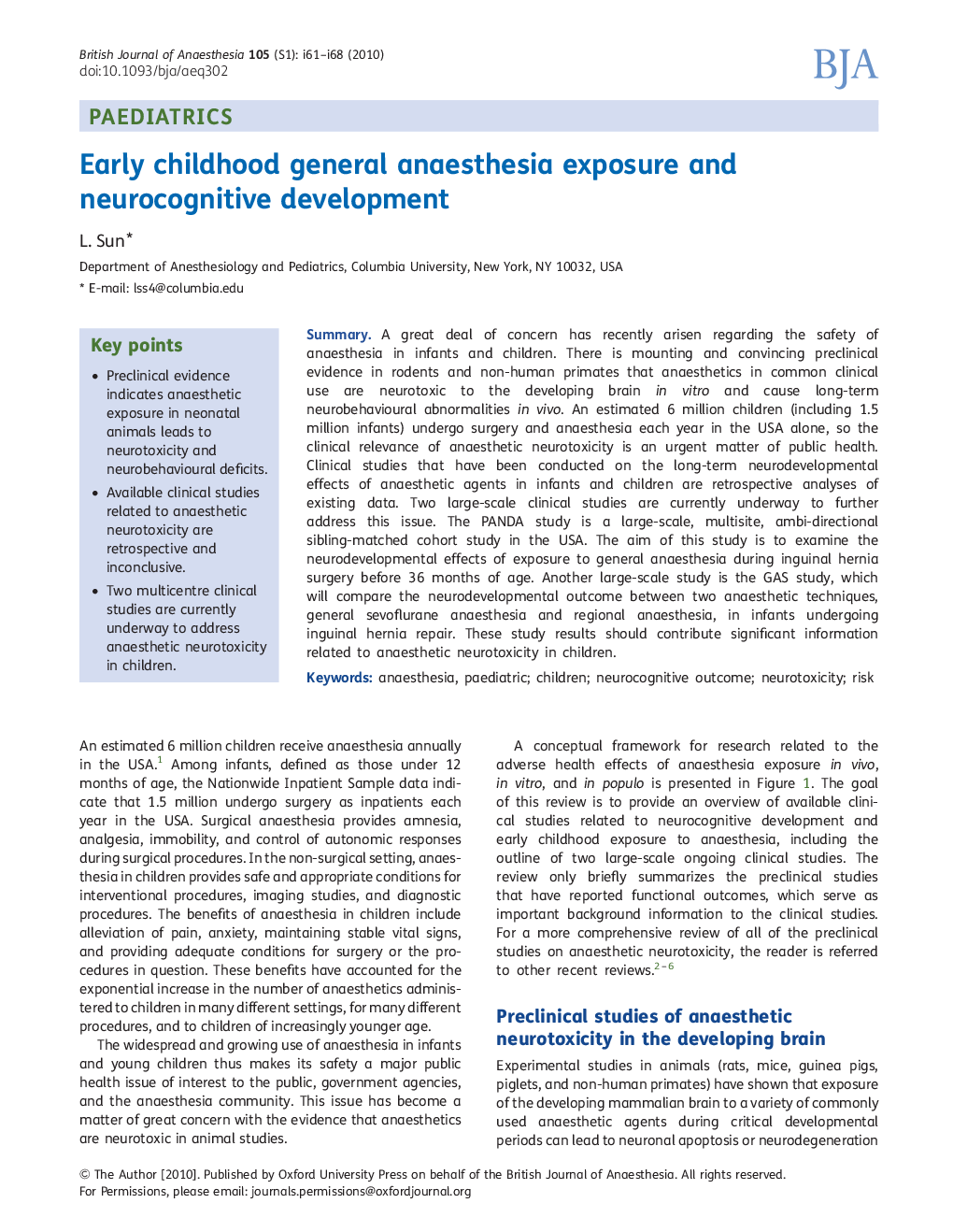| کد مقاله | کد نشریه | سال انتشار | مقاله انگلیسی | نسخه تمام متن |
|---|---|---|---|---|
| 8936613 | 1644615 | 2010 | 8 صفحه PDF | دانلود رایگان |
عنوان انگلیسی مقاله ISI
Early childhood general anaesthesia exposure and neurocognitive development
دانلود مقاله + سفارش ترجمه
دانلود مقاله ISI انگلیسی
رایگان برای ایرانیان
کلمات کلیدی
موضوعات مرتبط
علوم پزشکی و سلامت
پزشکی و دندانپزشکی
بیهوشی و پزشکی درد
پیش نمایش صفحه اول مقاله

چکیده انگلیسی
A great deal of concern has recently arisen regarding the safety of anaesthesia in infants and children. There is mounting and convincing preclinical evidence in rodents and non-human primates that anaesthetics in common clinical use are neurotoxic to the developing brain in vitro and cause long-term neurobehavioural abnormalities in vivo. An estimated 6 million children (including 1.5 million infants) undergo surgery and anaesthesia each year in the USA alone, so the clinical relevance of anaesthetic neurotoxicity is an urgent matter of public health. Clinical studies that have been conducted on the long-term neurodevelopmental effects of anaesthetic agents in infants and children are retrospective analyses of existing data. Two large-scale clinical studies are currently underway to further address this issue. The PANDA study is a large-scale, multisite, ambi-directional sibling-matched cohort study in the USA. The aim of this study is to examine the neurodevelopmental effects of exposure to general anaesthesia during inguinal hernia surgery before 36 months of age. Another large-scale study is the GAS study, which will compare the neurodevelopmental outcome between two anaesthetic techniques, general sevoflurane anaesthesia and regional anaesthesia, in infants undergoing inguinal hernia repair. These study results should contribute significant information related to anaesthetic neurotoxicity in children.
ناشر
Database: Elsevier - ScienceDirect (ساینس دایرکت)
Journal: British Journal of Anaesthesia - Volume 105, Supplement 1, December 2010, Pages i61-i68
Journal: British Journal of Anaesthesia - Volume 105, Supplement 1, December 2010, Pages i61-i68
نویسندگان
L Sun,